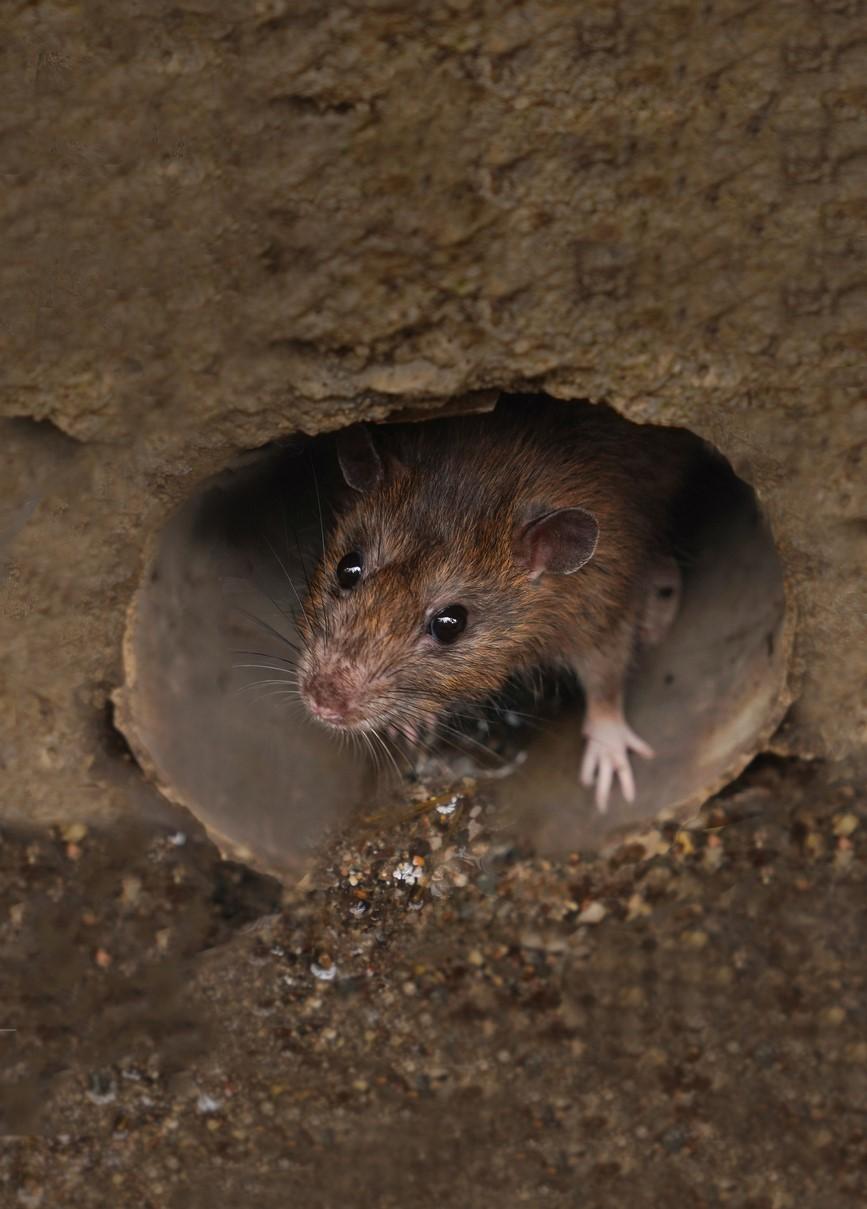SARS-CoV-2 can infect rats, as evidenced by wild rats in the New York City sewer system that tested positive for COVID-19 and/or antibodies against a strain circulating among humans earlier in the pandemic, according to a University of Missouri–led study published yesterday in mBio.
The US Department of Agriculture (USDA) Animal and Plant Health Inspection Service (APHIS) trapped 79 of the city's estimated 8 million Norway rats from September 13 to November 16, 2021, for SARS-CoV-2 antibody testing and the potential for viral variant infection. The study period spanned the dominance of the Delta variant.
Susceptible to newer variants
Of the 79 rats, 4 (5%) tested positive for COVID-19 on quantitative reverse transcription polymerase chain reaction (qRT-PCR), and 2 of them also had SARS-CoV-2 antibodies, suggesting that rats can be reinfected like humans. Thirteen rats (16.5%) tested positive for wild-type SARS-CoV-2 immunoglobulin G (IgG; 11.4%) or immunoglobulin M (IgM; 5.1%) antibodies.
Partial SARS-CoV-2 genomes were recovered from all four COVID-positive rats; analyses of these partial genomes suggested that the viruses were of a strain predominant in New York City in spring 2020.
The team also intranasally infected wild-type Sprague Dawley rats with the more-recent SARS-CoV-2 Alpha, Delta, and Omicron variants, resulting in high levels of viral replication in the upper and lower respiratory tract and induction of innate and adaptive immune responses. Of the variants, Delta was the most likely to cause an infection. The rats displayed no clinical COVID-19 signs or weight loss.
Potential for reverse-zoonotic spread
The results of this study, the authors said, are concerning because of the potential risk of viral transmission from humans to rodents, including wild rats, and then back to humans. Rats may also act as a reservoir of infection, potentially resulting in the emergence of new variants to which humans haven't been exposed and thus are vulnerable, the researchers said.
Rats aren't the only animal to have had documented SARS-CoV-2 infections. Deer, mink, otters, ferrets, hamsters, gorillas, cats, dogs, lions, and tigers have all been shown to have been exposed, with farmed mink directly causing infections in humans, the authors said.
The results of this study are concerning because of the potential risk of viral transmission from humans to rodents, including wild rats, and then back to humans.
In a news release from the American Society for Microbiology, publisher of mBio, principal investigator Xiu-Feng "Henry" Wan, PhD, said the results underscore the need for continued monitoring of SARS-CoV-2 in rats.
"Our findings highlight the need for further monitoring of SARS-CoV-2 in rat populations to determine if the virus is circulating in the animals and evolving into new strains that could pose a risk to humans," he said. "SARS-CoV-2 virus presents a typical one-health challenge which requires collaborative, multisectoral and transdisciplinary approaches to fully understand such challenges."




















